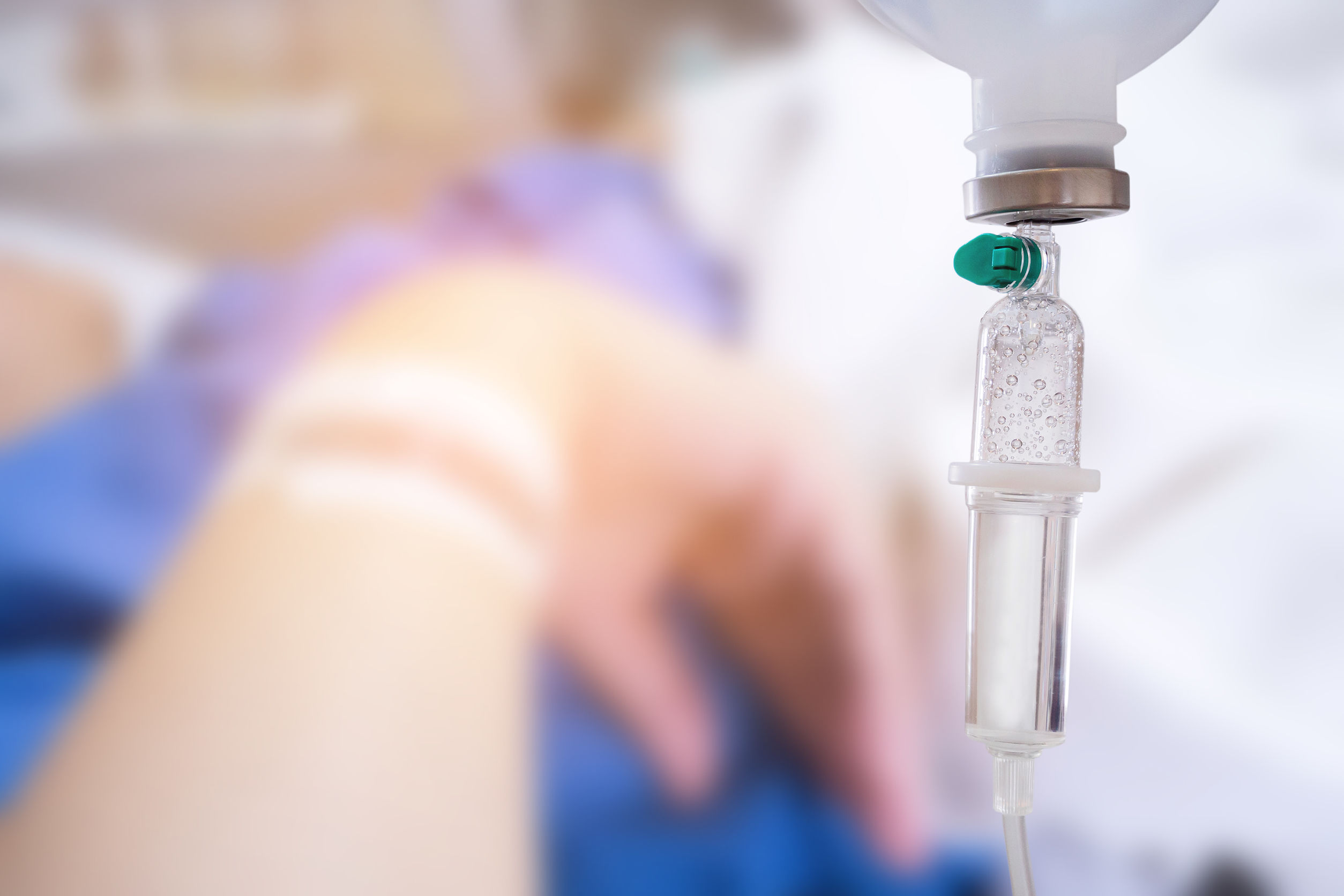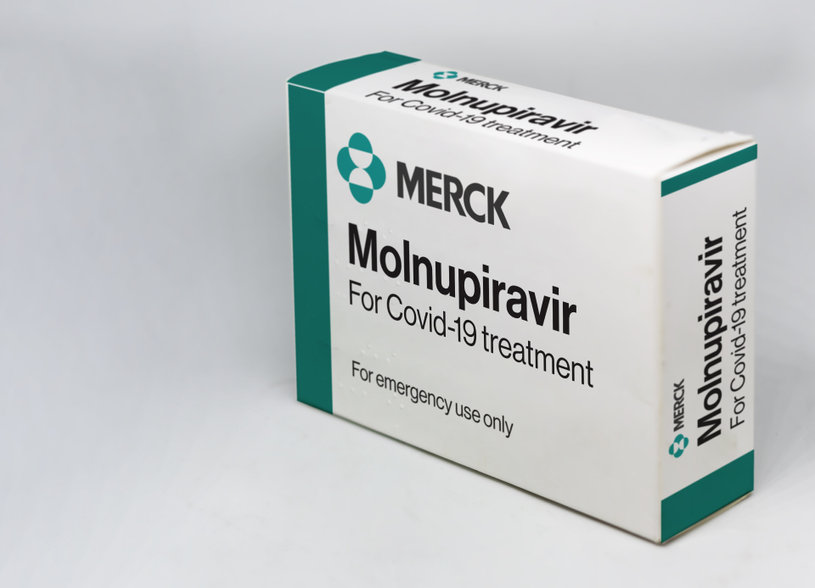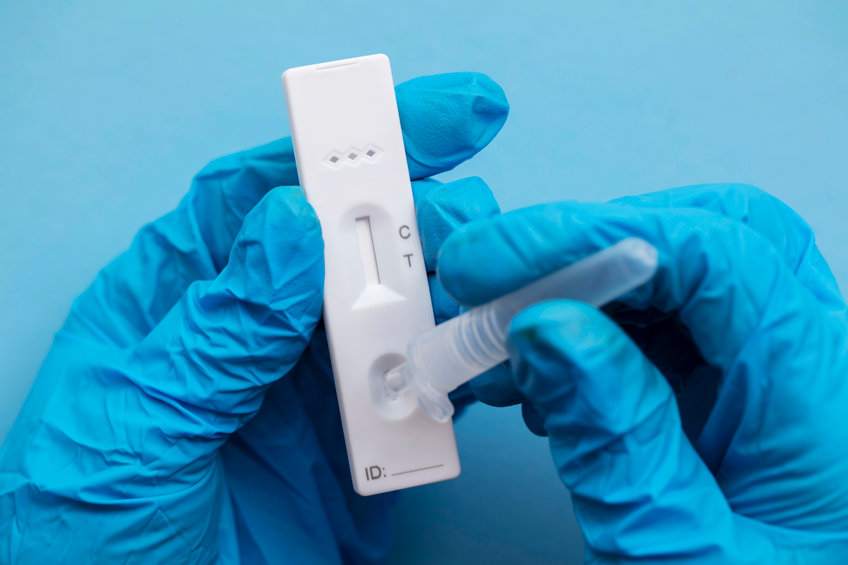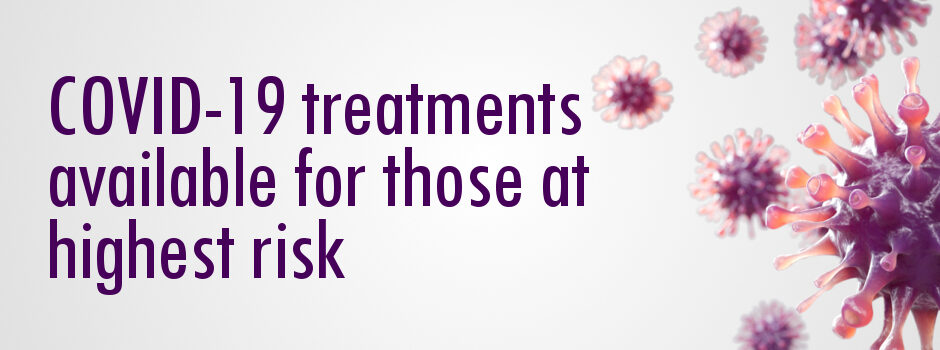
COVID-19 treatments available for those at highest risk – UPDATE
 April 12th, 2023
April 12th, 2023 Nakita Cambow
Nakita Cambow Latest News
Latest News 0 Comments
0 Comments
UPDATED 03/07/2023
The NHS is offering antibody and antiviral treatments to people with coronavirus (COVID-19) who are at highest risk of becoming seriously ill.
People considered to be in the highest risk groups from COVID-19 should have received a letter/email/text informing them that they are eligible for COVID-19 treatments if they have a positive COVID-19 test. This will help protect those most at risk from developing severe disease as a result of COVID-19 infection. The introduction of these new treatments is particularly significant for those who have compromised/suppressed immune systems and for whom the vaccines can therefore be less effective.
 Latest Updates
Latest Updates
- NICE has recommended nirmatrelvir and ritonavir (Paxlovid), sotrovimab (only if Paxlovid if unsuitable), and tocilizumab. The appraisals process for other treatments are ongoing. READ MORE
- The eligibility criteria for who can access these treatments has expanded. READ MORE
- The way you access COVID-19 treatments will soon change from one national system to different local systems. READ MORE
The currently available types of COVID-19 treatment include:Nirmatrelvir and ritonavir (Paxlovid)
Paxlovid is an antiviral medicine with a combination of active ingredients, nirmatrelvir and ritonavir, that works by inhibiting virus replication. This prevents it from multiplying, keeping virus levels low and helping the body to overcome the viral infection. Ritonavir slows the breakdown of the second ingredient nirmatrelvir in the body, thereby increasing its effectiveness. The two active substances of Paxlovid come as separate tablets that are packaged together and taken together, twice a day by mouth for 5 days.Paxlovid cannot be taken with some other medications (a full list can be found in the Patient Information Leaflet). It is important that you mention ALL prescribed, over-the-counter and complementary medicines you are taking when assessed by a clinician after testing positive. It may help you to keep a list of all your treatments in preparation.
You can read more in the Patient Information Leaflet – HERE
Sotrovimab
 Sotrovimab is a biological medicine. It’s also known as a neutralising monoclonal antibody (nMAb). nMAbs are synthetic proteins that act like human antibodies in the immune system. They are made by cloning an antibody that can stick to the spike protein of the virus and neutralise it. They stick to the virus and stop it from getting into your lungs and causing an infection.
Sotrovimab is a biological medicine. It’s also known as a neutralising monoclonal antibody (nMAb). nMAbs are synthetic proteins that act like human antibodies in the immune system. They are made by cloning an antibody that can stick to the spike protein of the virus and neutralise it. They stick to the virus and stop it from getting into your lungs and causing an infection.
It’s usually given to you through a drip in your arm (infusion). It will be given in hospital or at a local centre. If you have tested positive for COVID-19, are self-isolating, and are eligible, you will get instructions on where you’ll have the treatment, and how to get there and back safely.
This treatment will only be prescribed when you are unable to have Paxlovid, for example due to a medication allergy or contraindication with other treatment(s).
You can read more in the Patient Information Leaflet – HERE
These treatments are still in the NICE appraisal process, so may still be used:
Remdesivir
Remdesivir is an antiviral medicine that works by stopping the virus that causes COVID-19 from growing and spreading in the body. Remdesivir is usually given through a drip in your arm (infusion). It will be given in hospital or at a local centre once a day for three days. If you have tested positive for COVID-19, are self-isolating, and are eligible, you will get instructions on where you’ll have the treatment, and how to get there and back safely.
You can read more on the NHS website – HERE.
Molnupiravir (Lagevrio)
 This is an antiviral oral capsule. This treatment should be taken within 5 days of symptoms beginning. The full course should be taken and patients should follow the prescribing clinicians advice.
This is an antiviral oral capsule. This treatment should be taken within 5 days of symptoms beginning. The full course should be taken and patients should follow the prescribing clinicians advice.
You can read more in the Patient Information Leaflet – HERE
These treatments are no longer being used, but you may have received them in the past:
- Casirivimab plus imedevimab (Ronapreve)
Treatments for COVID-19 are for people aged 12 and over who have tested positive for the virus and are at highest risk of getting seriously ill. These include people who have:
- Down’s syndrome and other genetic disorders with reduced immune response
- Sickle cell disease
- Chemotherapy and radiotherapy patients, and those with a solid cancer
- Patients with a haematologic malignancy
- Renal disease
- Liver disease
- Certain autoimmune or inflammatory disorders
- Patients with a primary immune deficiency
- Certain respiratory conditions
- HIV/AIDs
- Organ transplant recipients
- Rare neurological conditions: Multiple sclerosis, motor neurone disease, myasthenia gravis and Huntingdon’s disease
Eligible patients should have been informed via a ‘pre-notification’ letter or email if they have a condition that may make them eligible to receive these treatments directly, should they test positive for COVID-19 infection.
Are people with lupus eligible for these COVID-19 treatments?

People with lupus are not all at the same level of risk from COVID-19 due to the variation in symptoms and treatments used to manage the disease.
The latest policy, which includes detailed guidance for Healthcare Professionals about eligibility, can be found in full HERE. The section for “Patients with Immune-Mediated Inflammatory Disorders (IMID)” is relevant for many people living with lupus. This indicates that the following people should be eligible for COVID-19 treatment if they have had a positive COVID-19 test:
- Individuals treated with rituximab or other B cell depleting therapy in the last 12 months
- Individuals treated with corticosteroids for at least 28 days prior to the positive test (with a dose equivalent to greater than 10mg per day of prednisolone)
- Individuals treated with cyclophosphamide (IV or oral) in the 6 months prior to the positive test
- Individuals on current treatment with tacrolimus, ciclosporin, azathioprine, mercaptopurine, methotrexate, or mycophenolate mofetil. No minimum dose is required.
- Individuals with active/uncontrolled disease, meaning they have needed an increase in dose or new immunosuppressive drug or course of steroids in the 3 months prior to the positive test.
- Individuals who have other high risk comorbidities such as a BMI greater than 30, diabetes, hypertension, or major organ involvement such as significant kidney inflammation
People with well-controlled lupus who are not on immune-suppressing treatments or corticosteroids, and have no high risk co-morbidities, are unlikely to be considered at high risk and therefore may not be offered these treatments.
I believe I should be eligible for the COVID-19 treatments but I have not received a letter/email. What should I do?
Free lateral flow test (LFT) kits and guidance letters have been sent to individuals identified as belonging to highest risk groups. If you have not received a notification and you believe this is in error, you could try contacting your GP or consultant to discuss whether you should be in the highest risk group. They will make an assessment of your condition(s) and treatment(s), and if you should be eligible, they should arrange for you to be issued with a letter and tests.
If you have not received a letter, that does not necessarily mean that you are not eligible for these treatments. If you develop symptoms of COVID-19 you should take a lateral flow test (LFT). If you test positive, you can contact your GP, 111, or your local treatment service to see if you can get an assessment or referral for the treatment. As the process for this can be different in the different nations of the UK, see our Accessing COVID-19 Treatments article for information for where you live.

The way you access treatments is different in the different nations of the UK. You can find information for where you live in our article on the different systems HERE.
It is also important to note that, as of April 2023, these treatments no longer have a prescription waiver, meaning that if you do not have a prescription charge exemption, you will need to pay a prescription cost when you receive them if you live in England. (Prescriptions are free of charge if you live in Wales, Scotland, or Northern Ireland).
Further Reading
NHS Coronavirus Treatments – www.nhs.uk/CoronavirusTreatments



 ©2024 LUPUS UK (Registered charity no. 1200671)
©2024 LUPUS UK (Registered charity no. 1200671)